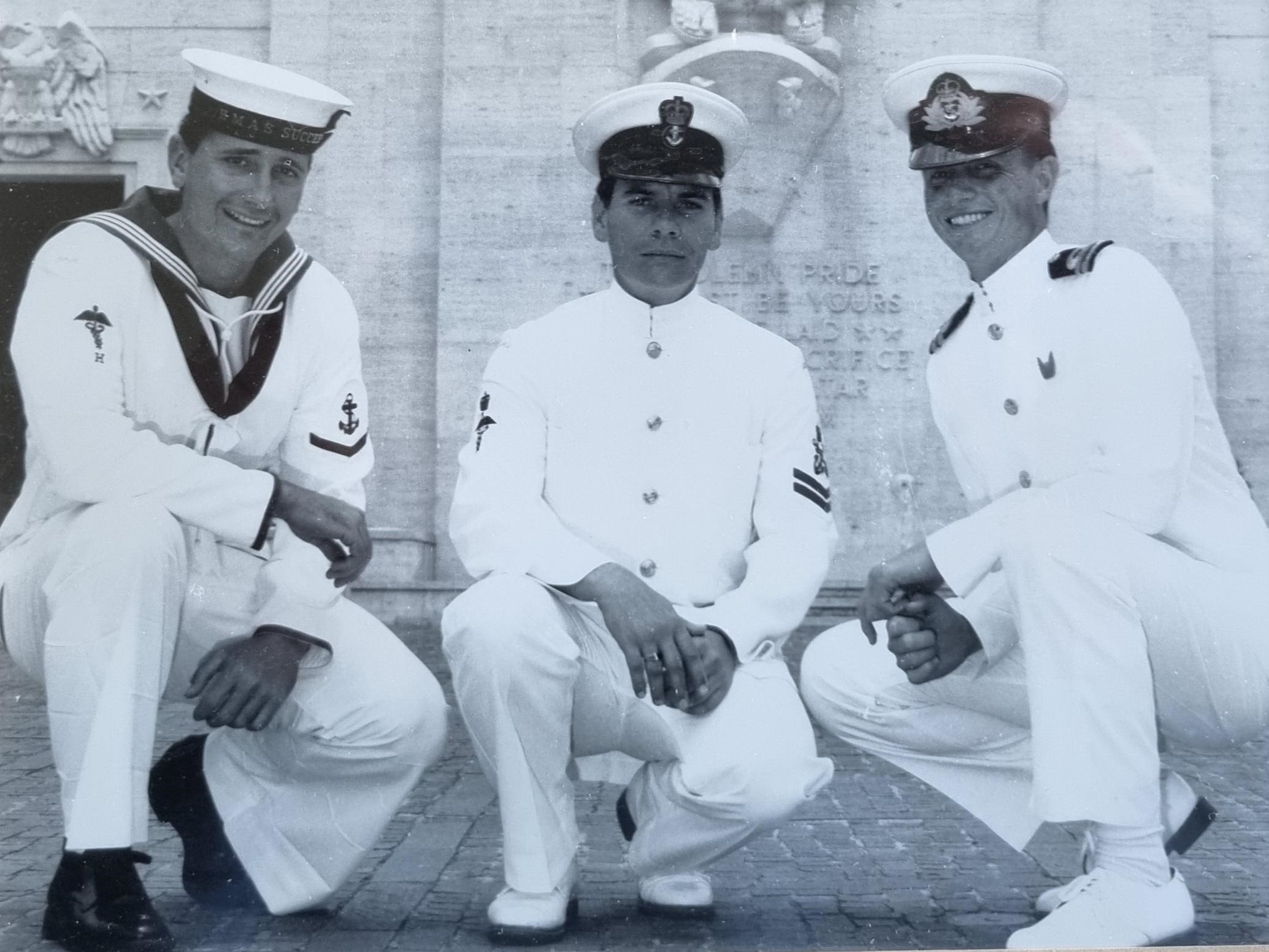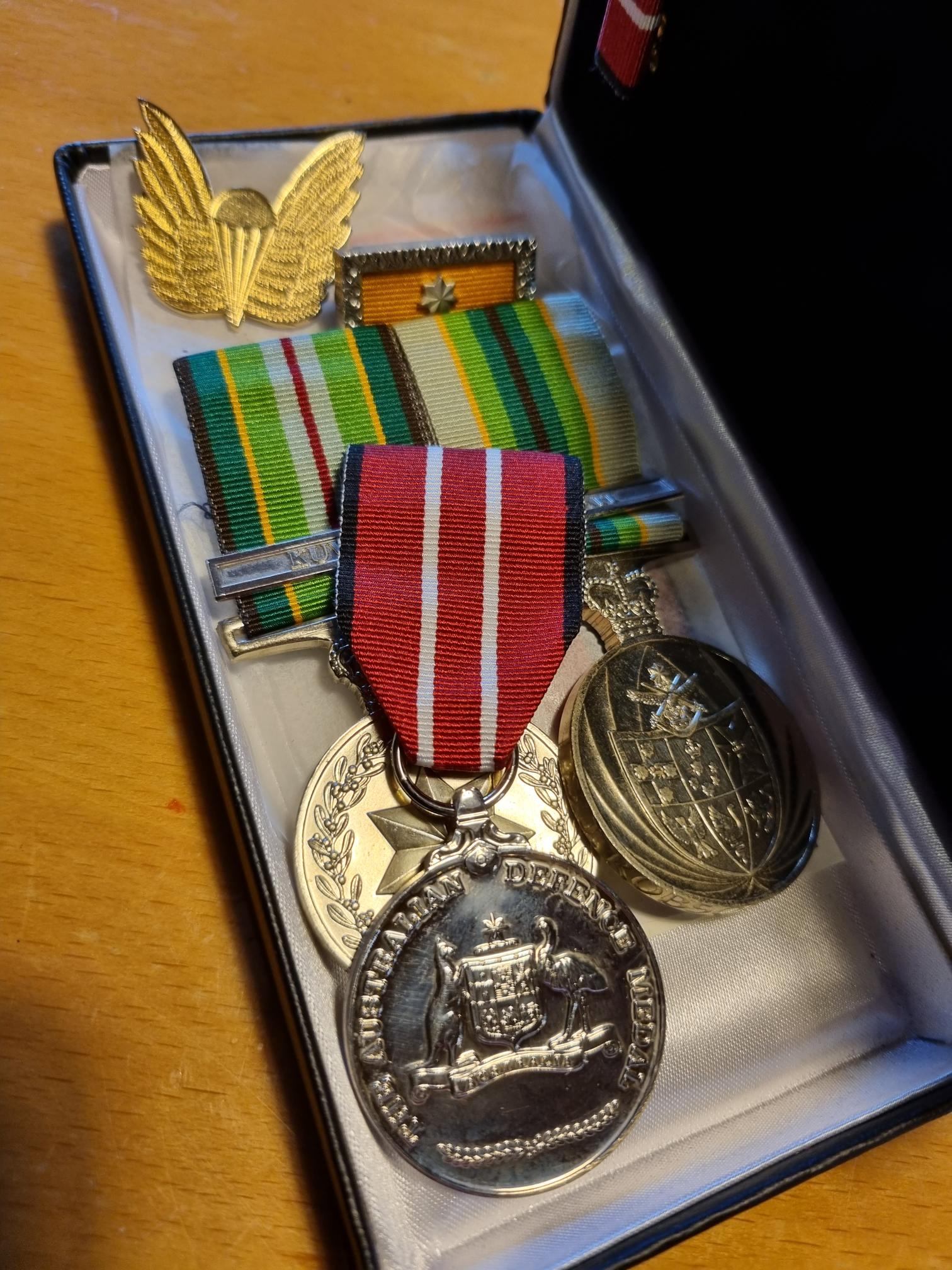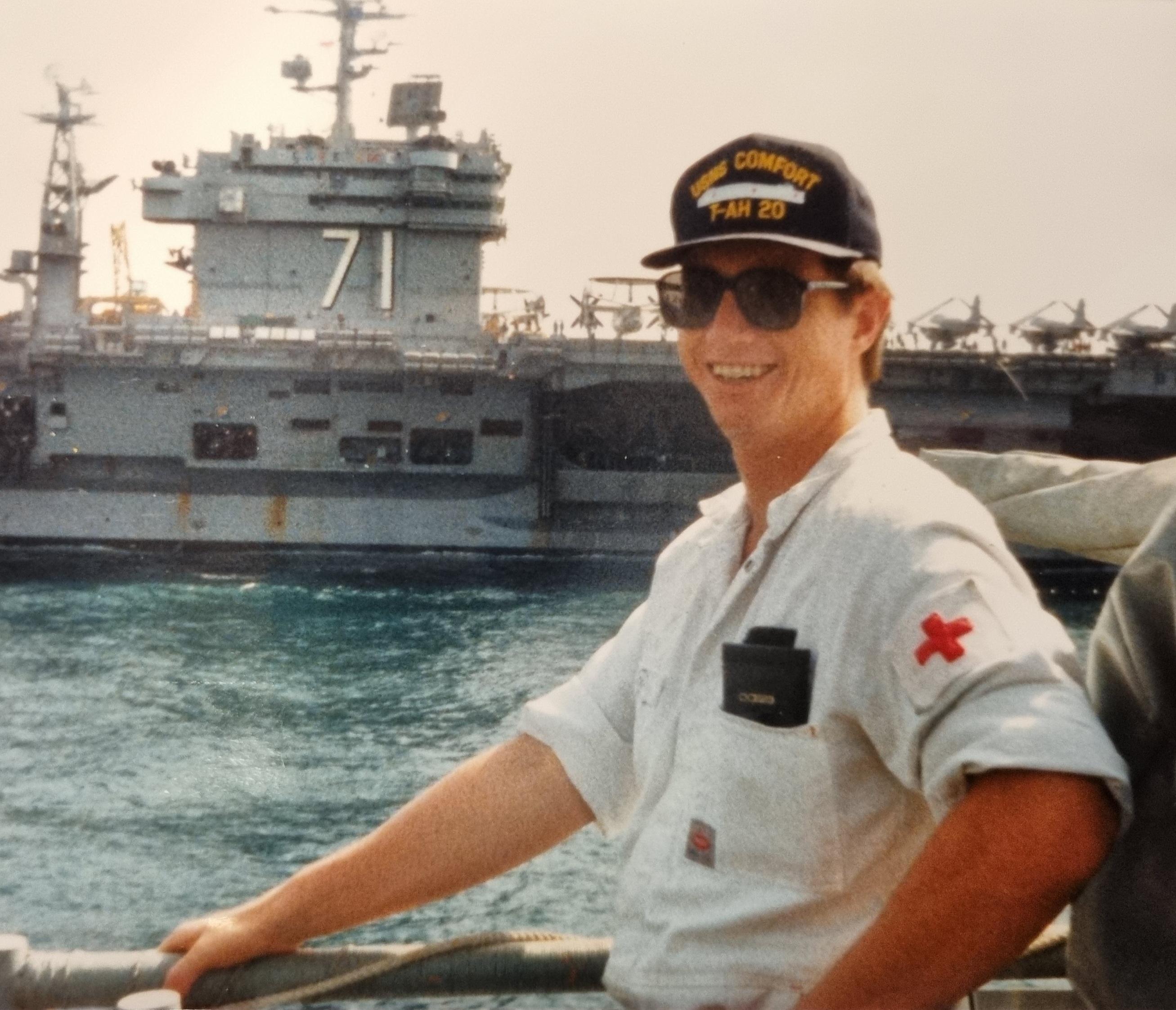The privilege of caring for those who have served
By Professor Steve Robson
Former Surgeon Lieutenant Commander, Royal Australian Navy
President, Australian Medical Association

It was about mid-way through my first year as a full time Medical Officer in the Royal Australian Navy that I really grasped just how far removed my career was from the training I had received at medical school, only a couple of years before.
I was standing at the foot of a huge tower, being connected to webbing straps, about to be hoisted several dozen metres in the air by a single cable that looked rather flimsy. The parachute jump instructor, a wiry Army corporal, checked my rig then slapped me on the shoulder and flashed a thumbs up to the tower operator. ‘Don’t worry, sir,’ he said with a wide grin as I was hauled upwards. ‘Free medical and dental!’
I was completing my basic parachute course at the Army Parachute School attached to HMAS Albatross. That course remains the most challenging training I have ever taken in a 35-year medical career and marching out with my parachute wings is still the achievement I’m most proud of in a long and varied career.

Like many Australians I have had the tremendous honour of serving as a full-time member of our Defence Force. I served in Defence establishments around Australia, and at sea in HMA Ships as part of our fleet. I was Surgeon Lieutenant in HMAS Sydney during the first Gulf War. I met and worked with members of all three Australian services, and with countless soldiers, sailors, marines, and air force personnel from many other countries.
I had always been fascinated with military service: a number of my family members had been servicemen. My uncle Eric was aboard HMAS Voyager when she was struck and sunk in the terrible disaster just off Jervis Bay. Another uncle, Roy, had been a pilot with the RAAF and lost his life when his Sabre came down during the Korean war in the 1950s. My grandparents’ home in Brisbane was dotted with mementos of my various uncles’ service years, including the US Air Medal awarded posthumously to Uncle Roy.
Spending time in that home, seeing the photos and hearing the stories my living uncles told me, had a profound impact on me as a young man. I never had a sense that military service was anything other than risky.
My own years in the Navy confirmed that impression for me. As a Medical Officer I had treated serving members who had suffered serious physical and emotional injuries. In some respects the emotional injuries left mental scars that were more serious and disabling than most physical injuries. I had indeed seen this with my own uncles long before it was my term to serve.
I was very fortunate to have avoided any physical injury myself during my time. I did, however, see serious harm occur to others in my establishments or ships. Each of us knew there were risks in our work, but training and precautions were rigorous and people approached tasks with their eyes open. And we had the comfort of ‘free medical and dental.’
After my full-time service, I spent some time helping out through the Navy Reserves. Ultimately, my specialisation took me far enough way from general medical practice that there was little point in serving as a generalist medical officer. However, I’m still very proud to have worked with so many people who have served.
Through my work in Canberra, where I have been for 20 years now, I have had the opportunity to treat and help care for many serving and ex-defence individuals. My own service has created a common bond, and we commonly reminisce together during consultations.
As Remembrance Day draws near, I honour the lives lost in service and acknowledge those currently serving. I also know this service can cause serious mental health challenges, which can reverberate through to families and loved ones.

As a doctor and former serviceman, I would urge you to seek help from your GP sooner rather than later to deal with these. I understand why you might try to ‘push through’, but this will only compound illness. And there is help out there.
The unique nature of Defence Force training and deployment is difficult to describe to people who have not had the experience. I have always found it an honour to provide medical care for serving personnel and veterans. Sometimes patients are surprised to find out that I have had active service and it always sparks a positive conversation.
I hope to have the privilege of caring for those who have defended our country for many years to come.
Images: 1.Steve Robson (on the right) at the National Memorial Cemetery of the Pacific, Punchbowl Crater, Honolulu, Hawaii, on ANZAC Day 1990. 2. Professor Robson's service medals. 3. Steve Robson on HMAS Sydney in the Persian Gulf, 1990.
